After getting some quality hands-on time with Ascension: Eternal, I’m sold on the new deckbuilding game that’s perfect for beginners.
Deck building games can feel daunting to get into, especially one that’s been around for a decade already. Thankfully, Ascension: Eternal is here to ease you into the franchise while being a lot of fun along the way.
If you’re not as familiar with the deckbuilding genre, it’s very similar to most other tabletop card games (Magic: The Gathering, Pokemon, etc) except in reverse. Rather than starting out with massive decks you build out ahead of time—planning for eventualities to beat out your opponent—you have to do it on the fly.
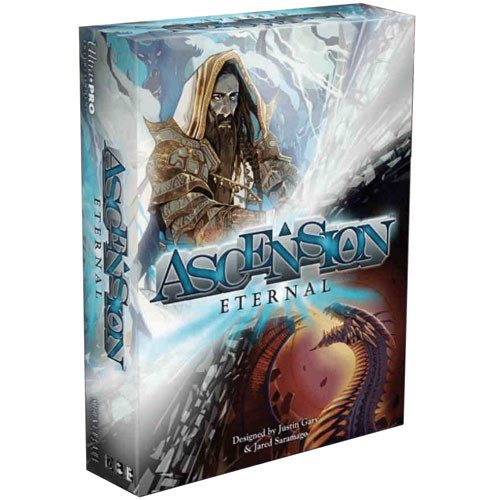
Game Basics
Developer: Stoneblade Entertainment
Players: 1 – 2 (and aged 10+)
Release Date: Available Now
Purchase [Affiliate Link]: https://amzn.to/3AHYHM5
Players start out with the same “hand” of cards and use their turns to acquire BETTER cards from a communal deck. As the turns keep coming, your personal deck and options, become more robust. This allows you to turn your accrued forces against various creatures (though not each other as is the case in other games like this). It’s pretty cool. I love the overall idea of them, and by their very nature feel significantly more accessible than other card games out there.
I mean, with Magic The Gathering, Yu-Gi-Oh!, Pokemon, or just about any other Trading Card Game, you pretty much have to build out your deck already knowing the basics of the game and how to play. If you build the deck wrong, you could be missing out on crucial things you’ll need to simply progress normally. With a deckbuilder, however, it’s happening right as you play so there’s no need to pre-strategize or worry if you’ve left out something necessary in your deck.
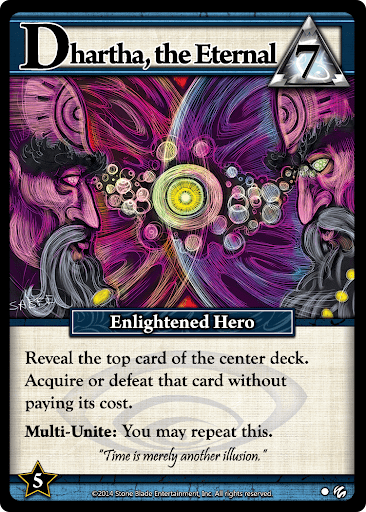
Though it launched back in 2011 (just a scant 10 years ago), Ascension has quickly proven itself to be among the best of the genre and has grown to encompass 12 expansions. These have vastly expanded on the game’s world and lore, while adding new options to keep things feel fresh.
With all that, it might seem really difficult for someone new to jump into it all. That’s what Ascension: Eternal comes in. I hate to say it’s a more simplified version of the game, but that’s essentially what Eternal boils down to. This is only a two-player game (unlike the core game that can accommodate up to 4 players) which keeps things moving along at a brisk pace. This allows each player plenty of opportunity to feel like they can take their time and learn without holding up the whole experience and other players.
Everything you need to play the game are included in the box, so you don’t even have to worry about the many other expansions that are out there right now. Just use the deck that comes with it, lay out the board, and get to playing.
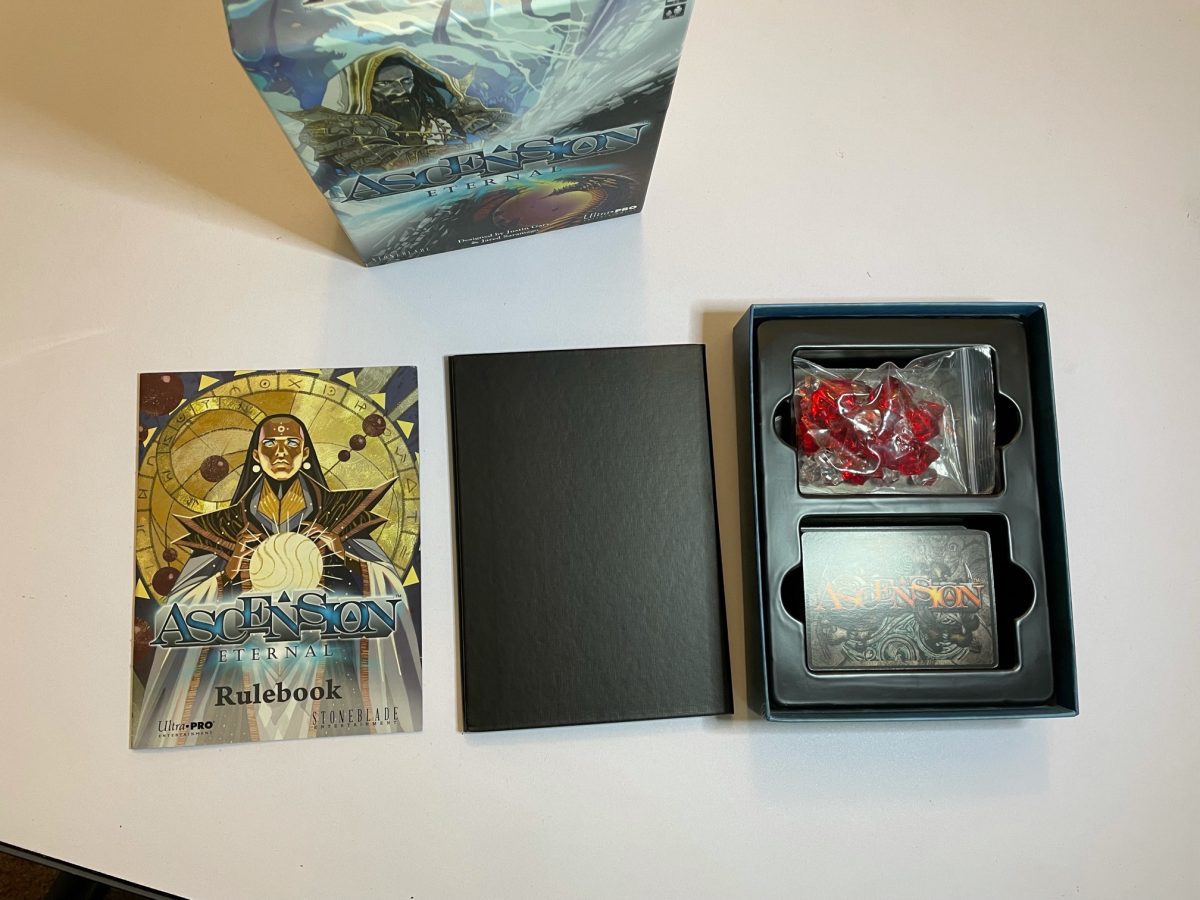
Right off the bat, it’s a gorgeous looking game. The artwork on the cards is stellar, capturing that high-fantasy feel that harkens back to classic card games, while feeling distinctly itself. Even better, the cards themselves aren’t overly complicated/packed with text that compresses or overshadows the art itself. The text and mechanics displayed on the cards are easy to read and follow along. Having from from some card games that damn near required a magnifying glass to read, this was nice to see as I opened the box up.
I came into Ascension completely blind. I love card games but rarely have the time to play them…or anyone to play them with. Thankfully, my older kids are big enough now to understand and join with me, so I grabbed my son to help me test out Eternal. Neither of us have ever touched the franchise, nor know anything about the lore behind it. Even so, we were able to get through a few matches relatively easy and have a bunch of fun doing it.
![]()
The game keeps it’s premise simple, and conveys that through the included rulebook. It’s still a deckbuilder, so you are using your hand to buy up cards from the middle, which are immediately shuffled up into your personal discard pile for later use. So even as you get better and better cards, knowing when they’ll show up in your hand is still up to chance. It brings another layer of strategy to the game as you’re not only picking up cards you think will help, but trying to plan ahead (while playing) to how you might use them later.
There are ways to permanently take cards out of play, keeping your opponent from making use of them, of course. All of which leads you to battling it out with various creatures on the board. Defeating monsters is your key to victory, as doing so allows you to accrue “honor tokens” (the red and white plastic gems that are included).
The whole point of the game is to gain more “honor” than your opponent. Once all the tokens are gone, the game ends and each player counts up the honor they’ve stockpiled (cards in your personal hand/deck also count for specific amounts) and whoever has the most, wins.
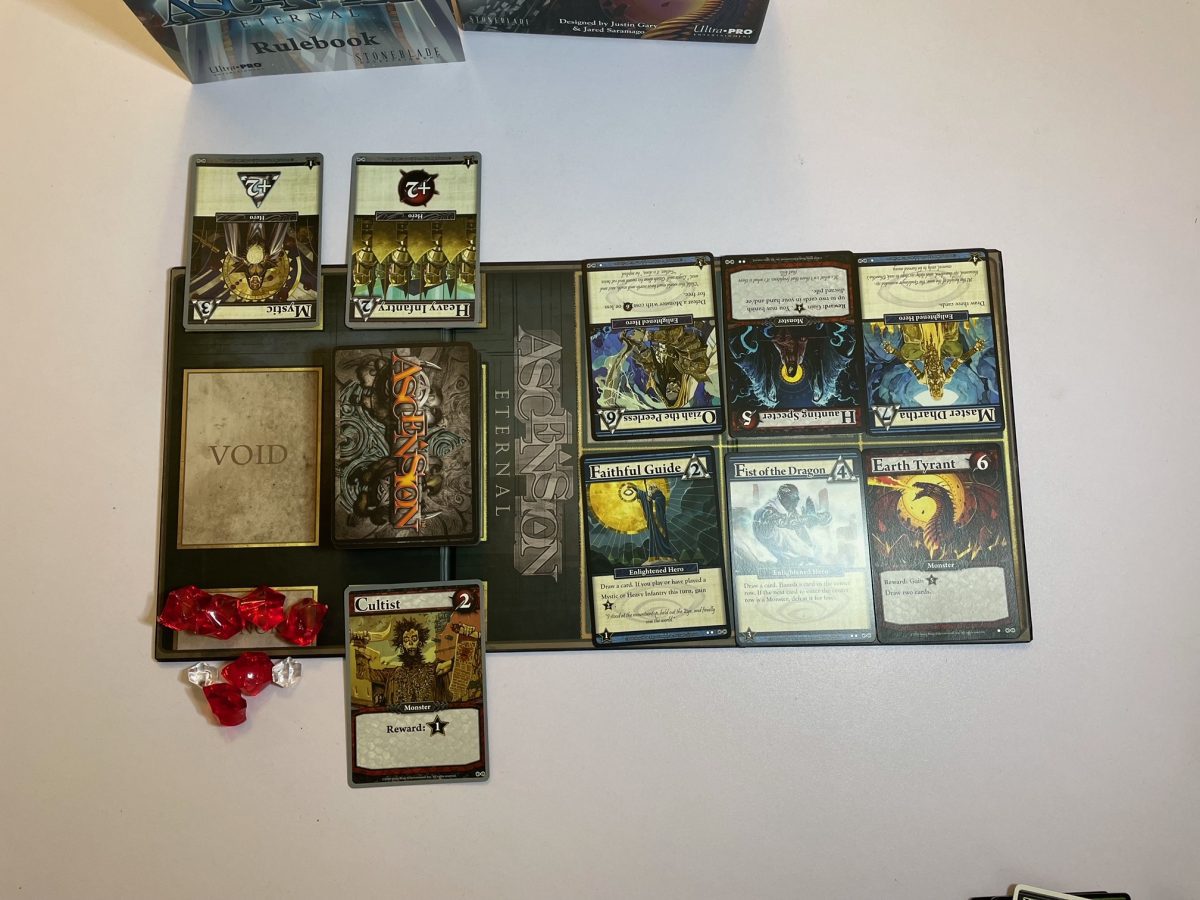
It’s fairly simple and straightforward in concept, but allows plenty of room for strategy and depth. While you’re not directly attacking the other player, you have to keep them in mind at all times; building your honor while keeping them away from it. There are a number of things to keep in mind throughout the game (which only takes up to 20 minutes or so), and juggling all these aspects while staying ahead of your opponent is where the fun comes in.
It was easy to get started, and though I’ve only played a few times now, my years of experience with other card games lets me see how deep the game can truly get. In this way, Ascension: Eternal really feels like the perfect starting point. Not only for the bigger Ascension world, but deckbuilding games in general.
That said, I suspect those with a little more familiarity might have an easier time getting started. The rule book is helpful, though isn’t always as clear as I wanted it to be. Several times during that initial game I had to re-read sections because something just wasn’t clicking. Once I figured it out (sometimes using the handy tutorial videos they suggest for newcomers) it felt really simple, but it seemed like they skipped over some steps on the book side. Perhaps they assume some familiarity with the game/genre. Who knows?
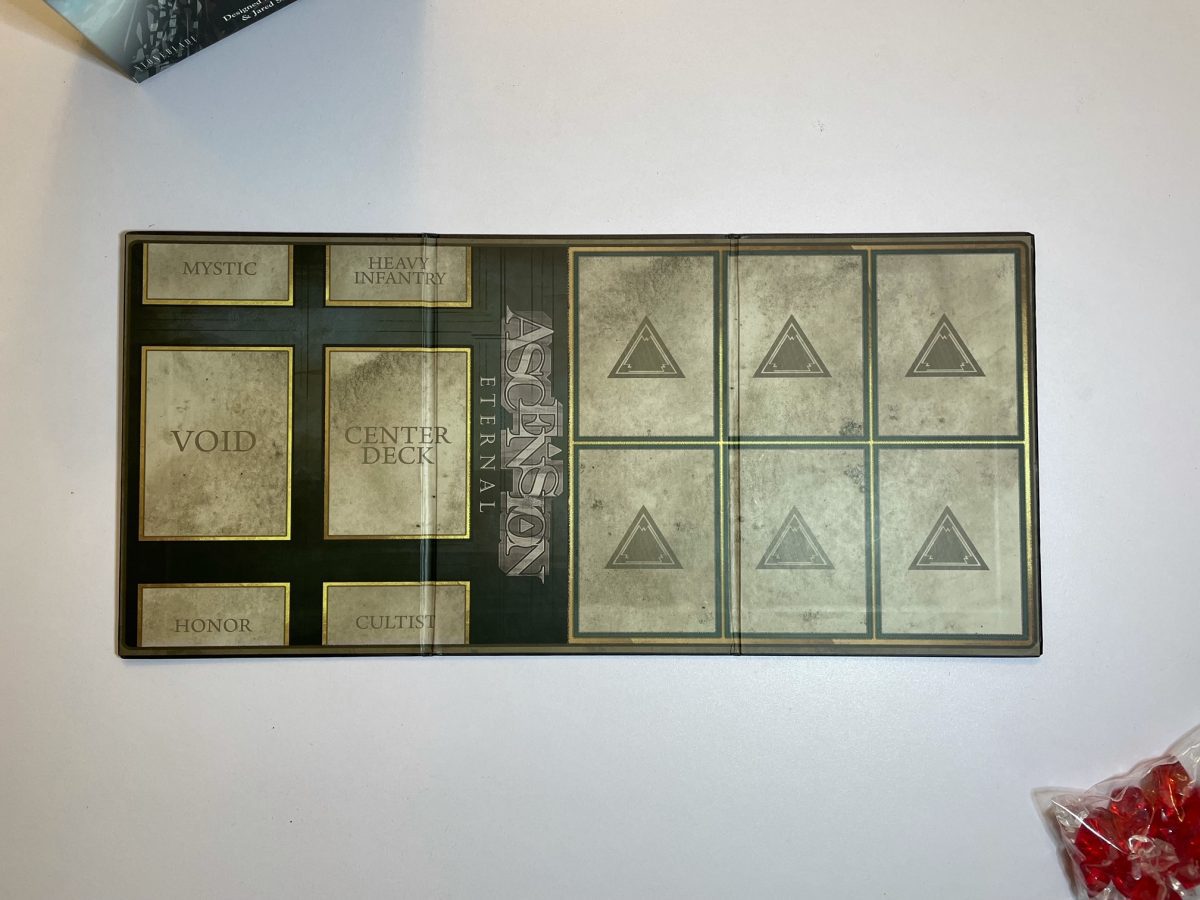
Either way, it’s a relatively minor gripe and was easily resolved. Speaking of minor gripes…
About the only other thing that bugged me, was the game board itself. It’s a much smaller/simplified version of the main board game. The result is that a bulk of the cards are only designed to sit on a PORTION of the board itself. So you’ve got cards that are dangling off the sides. It’s not necessarily a bad thing, and far from a deal breaker, but just kind of strange. After a few games, I found myself just foregoing the board altogether.
Aside from those niggling issues, I really enjoyed my hands-on time with Ascension Eternal. My son had a blast too and it was nice being able to do one of these games together without feeling overwhelmed.
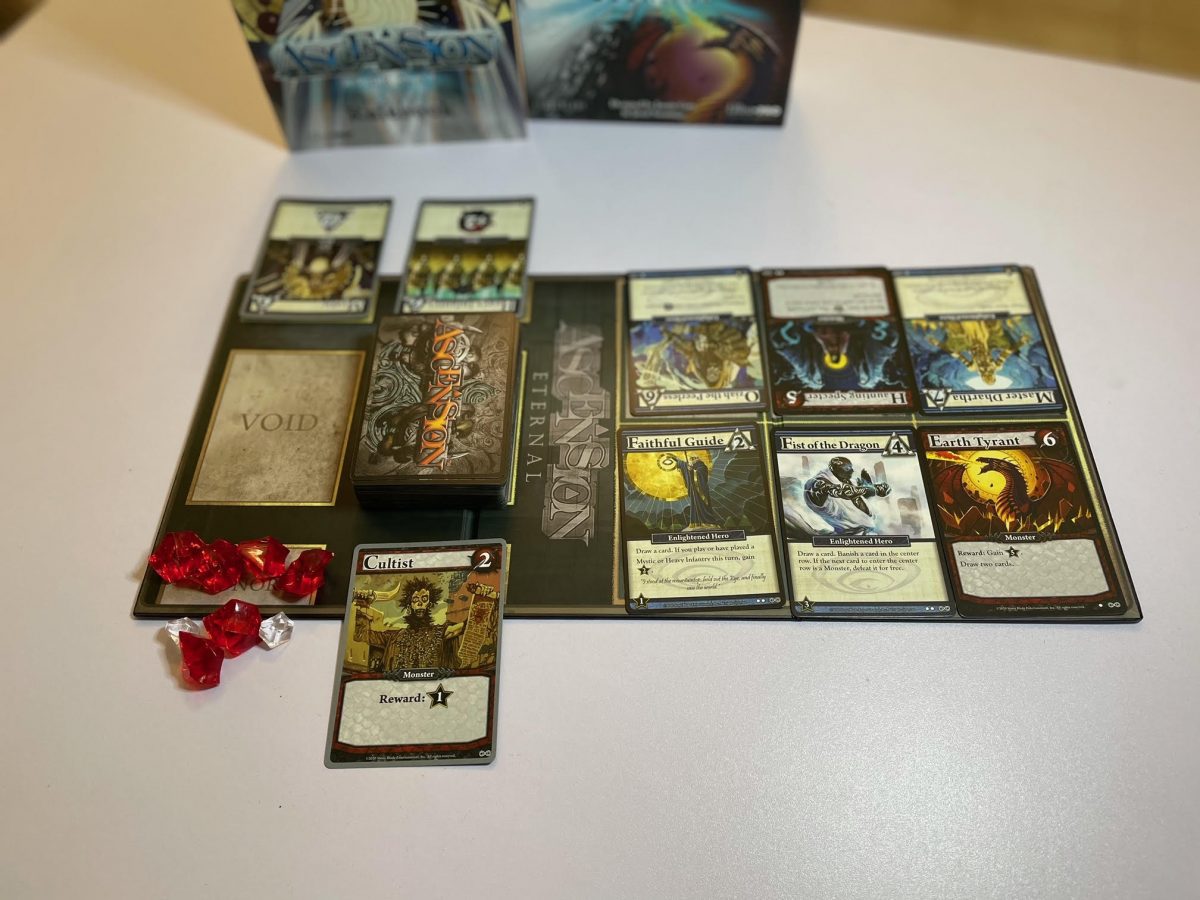
All in all, this deckbuilding game is pretty great. It’s super accessible for newcomers looking to get into the main Ascension game or card games in general (especially since only $20 gets you EVERYTHING you need to play). Long time players will still have fun with it, however, as it still offers plenty of depth and strategy that will keep you playing time and time again. Even better, no match ever takes that long, so it also makes for an excellent option for players who love the core game, but don’t always have the time to sit down with a bigger group of friends to play.

